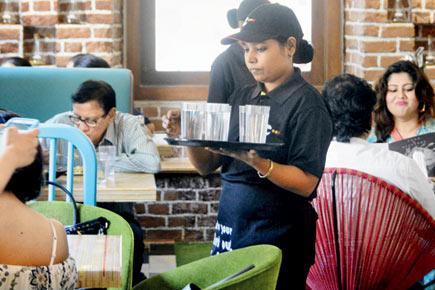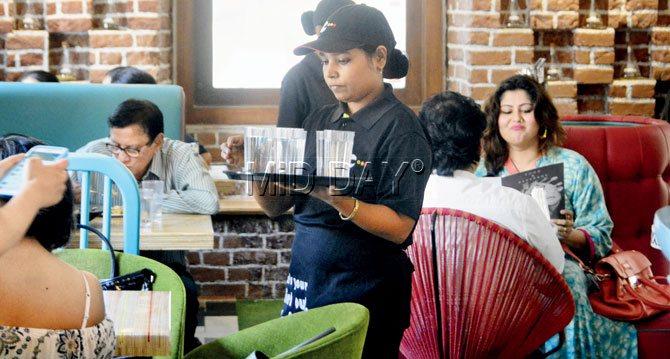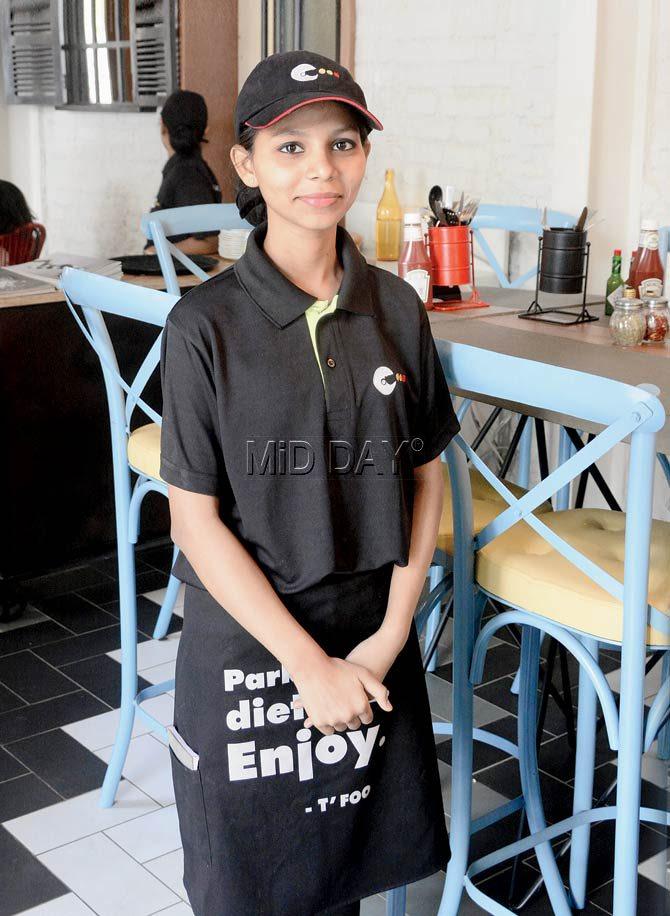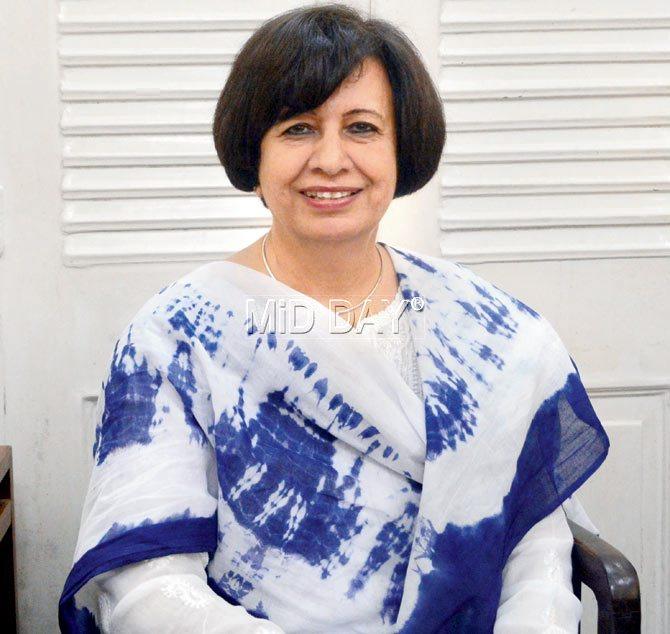Nana Chowk's Parsi eatery By The Way makes way for new cafe manned by underprivileged women from next door's Seva Sadan Society


Eight underprivileged women chosen by the Seva Sadan Society, a refuge for destitute women, work at Tea Villa Cafe. Pic/Bipin Kokate
ADVERTISEMENT
Till about three months ago, 18-year-old Payal Suresh Raut's interaction with patrons at Aahar, non-profit Seva Sadan Society's no frills cafeteria at Nana Chowk, was strictly business. "People would come for a quick bite or grab a take-away, so there was never a need to learn to interact with customers. I had to take orders and hand them a parcel," she says.
However, in the last one week, Raut's skills have had to evolve. Now, she takes table orders and helps with service, and also greets customers, answering any queries they may have about the menu that's dominated by exotic teas from China, Japan, Korea and other countries along with Mexican, Thai, American and Italian cuisine. She has an additional role to play by the kitchen counter, learning the art of stirring up an innovative cooler or a fragrant cup of tea. The undergraduate student of arts is one of 10 underprivileged women chosen by Seva Sadan, a refuge for destitute women, to work at Tea Villa Cafe. Launched last week, it occupies the spot that once housed the Parsi eatery By The Way.

Payal Suresh Raut was earlier serving at Aahar before her training at Tea Villa.
Packed house
When we drop in on a Thursday afternoon, the 50-seater is packed with customers, most of them college-goers. Among the 12 staffers are six women, who live at the Seva Sadan hostel housed in the backyard of the cafe. "We have divided them into batches so they can work in shifts. They cannot serve beyond 10 pm because that's when the hostel doors shut," says Roopanshi Bhatt, co-founder of Tea Villa, who has been training the staff. Currently, the cafe has six male employees picked from other branches, who are around to help the newbies learn the ropes. "Although some of them have worked at By The Way and Aahar in the past, we still had to train them because it's a busy cafe and the crowd here is different [from what they have handled]. You have to be on your toes," says Bhatt.

Guddi Advani
Special training
Training includes learning to make 35 types of exotic teas and summer drinks that Bhatt has introduced here as additions to the existing menu. The girls will be trained to prepare the Indian varieties of tea before moving on brewing the exotic ones.
"The Indian tea is my mother's recipe, and they are being taught under her supervision. They will first learn to make masala tea which some of them know, but here they will blend it with different types of herbs and ginger," she says.
The girls, she adds, were initially diffident. "Many of them are not fluent in English, so interacting with customers was a problem. We have allotted duties according to their skill and comfort, but eventually, we want the whole lot to be experts at running every section of the cafe," she says. Most of them are hopeful they will make a career in hospitality.
Raut, however, admits that hospitality was her second choice. "I wanted to be an air hostess, but I don't have the required height and my English skills are poor. And I realised that hospitality has more longevity than a job with an airline," she says.
Raut and her friends, who are up by 5 am every day, start work at the cafe by 11 pm. Twenty-year-old Janaki Yadav has been entrusted with taking customer orders, serving and clearing tables. "Preparing the teas will come later. They first want me to get comfortable interacting with customers because I am a bit shy," she smiles.
Bhatt says the idea of collaborating with the NGO emerged from her partner Micky Panjwani who happened to find out from a common friend that the NGO was looking to lease out the space to a restaurant. The license for running the business, however, still lies with By The Way. "They wanted to check our other outlets in Bandra and Versova before taking a decision. So they visited the space and were happy with what they saw," says Bhatt.
More outlets soon
Guddi Advani, president of Seva Sadan Society that was founded in 1908 by eminent social activists and philanthropists, Behramji Malbari and Diwan Dayaram Gidumal, says the goal is to develop their vocational skills and make them financially and emotionally independent. "We have about 100 girls living here, and we are trying to provide them with opportunities to be self sufficient. One of them, Puja Kamle, is also involved in the cafe's bakery section," she shares.
Bhatt, who plans to open four more Tea Villa outlets in the city, totalling the number of branches in Mumbai to 20 outlets hopes to continue recruiting disadvantaged staff in future. "They are enthusiastic and eager to learn. Once you have that [trait], the rest just falls into place."
 Subscribe today by clicking the link and stay updated with the latest news!" Click here!
Subscribe today by clicking the link and stay updated with the latest news!" Click here!






